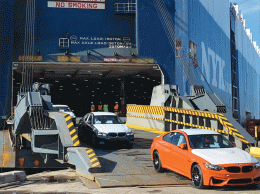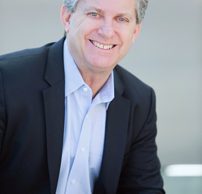
Henry Dubroff
The intersection of business and politics is a busy place, especially in an election season that’s defied conventional wisdom right through to the end.
From the shock of the Brexit vote to the rise of Donald Trump and Bernie Sanders, 2016 has been different from anything we’ve seen in recent memory. And my gut tells me that something very different that’s happening in the economy is driving the revolt against politics as usual.
So, for insights into what economic lessons the chaos of the current political cycle might teach us, I turned to Benjamin “Jerry” Cohen, the Louis G. Lancaster Professor of International Political Economy at UC Santa Barbara.
Cohen has been at the leading edge of thinking about geopolitics, global trade and the role of the dollar, beginning with a stint at the Federal Reserve Bank of New York in the early 1960s, after earning his Ph.D. at Columbia University.
One major shift that has to be reckoned with, he said, is that the world is experiencing something that it has not seen since The Great Depression. Rather than expanding as it has done since the end of World War II, global trade is contracting and, for the millions of people burned by the financial crisis, the future looks bleaker and bleaker.
Commodity prices and producer prices have declined since their peak in 2011. Prices being quoted at the factory in China have declined for 50 straight months.
“There is a petering out of the principal propellants of growth,” he said, adding that some of the forces that buoyed the economy for decades, including information technology and automation, are not having the same positive impact.
The result of the slowdown in trade is something akin to a political tsunami following an economic earthquake, in this case the 2008 financial crisis. Lost jobs across the industrialized world have led to lost faith in the future.
“First and foremost,” among the impact, he said, are “protectionism and a breakdown in the global trading system.” The demands from leaders for closing borders to immigrants, tariffs to reduce imports or penalizing companies that invest overseas is a “significant reversal in the open trading and investing system that we have now.”
Hand in hand with protectionism comes rising political populism, nationalism and demonizing of foreigners. The next step is authoritarianism, the rush to conclude “that we need a strong man to control things.”
Leaving the U.S. and the Trump phenomenon aside, that is precisely what has happened in Poland, Hungary and Turkey, nations that are what Cohen described as having “the trappings of democracy but are de facto authoritarian.”
One of the biggest failures by our political class is underestimating the emotional intensity of voters who see trade as a massive job killer.
“Protectionist pressure is going to build unless something is done openly and massively” to assist people who’ve lost their jobs, said Cohen. “I’m absolutely convinced that’s the only way to avoid some of these consequences.”
Trade adjustment assistance to help people who’ve been displaced has been “miserly” at best and needs to be expanded, he said.
Among the things that should be tried, he said, are extended unemployment assistance, generous benefits for retraining workers, assistance to help people move to where jobs are and portable health care benefits.
“The majority of the U.S. population lives paycheck to paycheck,” he said, which means that benefits need to be “more extensive and more generous.”
For all the political noise of a fiercely contested election, it’s easy to miss the signal that the rest of the world is sending about the U.S. economy. As the world’s biggest economy with the only currency that’s viewed across the globe as a preferred safe asset, the U.S. and the dollar remain at the top of the global economic food chain.
“The dollar’s role as a store of value” will likely increase “as it did in the 1930s,” Cohen told me. “We saw it in the global financial crisis in 2008.”
What’s equally telling is that the U.S. is putting up positive GDP numbers and is not grappling with Japan-style deflation.
“The U.S. is really the only game in town,” said Cohen, adding that it will be up to the U.S. to understand the “enormous responsibility” of having the strongest economy and the dominant currency.
Like the Ventura County farmer who plants a grove of oranges every year as a hedge against a freeze in Florida, the U.S. is going to be called upon to lead the world out of the crisis in global trade.
“We are the last man standing,” said Cohen.
• Reach Editor Henry Dubroff at hdubroff@pacbiztimes.com.






 Print
Print Email
Email

















